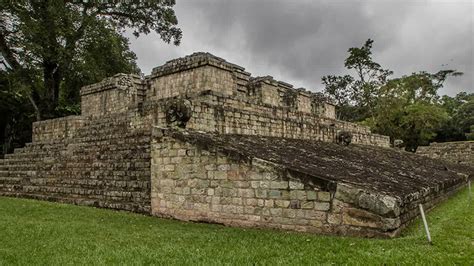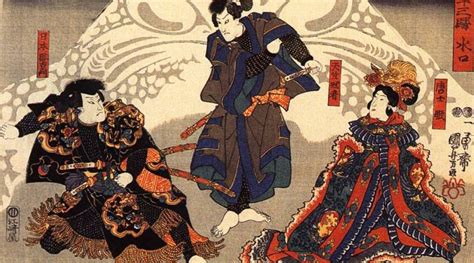Explore the rich history of Andorra, from its early settlement and formation of government to its role in world wars and transition to democracy. Experience Andorra’s unique relationship with France and Spain.
Early Settlement of Andorra
Contents
History of Andorra
The early settlement of Andorra can be traced back to the pre-Roman era, with evidence of human habitation dating back to the Neolithic period. The region’s strategic location in the Pyrenees mountains made it an attractive area for early settlers, who took advantage of the natural resources and fertile land. The Andorran people have a rich history and heritage that is steeped in centuries of tradition and culture.
Throughout its history, Andorra has been influenced by various civilizations and cultures, including the Romans, Visigoths, and Moors. The establishment of the Carolingian Empire in the 9th century brought Andorra under the control of the Count of Urgell, and later, the Bishop of Urgell. This feudal arrangement laid the groundwork for the co-principality that exists in Andorra today.
The early settlers of Andorra were primarily farmers and shepherds, who cultivated the land and raised livestock in the mountainous terrain. Their way of life was centered around the communal management of resources and the close-knit communities that developed in the region. The traditional stone houses and agricultural terraces that dot the landscape are a testament to the early settlement of Andorra and the enduring legacy of its first inhabitants.
The early history of Andorra is shrouded in legend and mythology, with tales of Charlemagne granting the Andorran people their independence in recognition of their valor in battle. While the exact origins of Andorra’s political autonomy are debated, the spirit of independence and resilience has defined the country since its earliest days.
The early settlement of Andorra laid the foundation for the unique and vibrant culture that exists in the country today. From its ancient origins to its modern identity, Andorra’s history is a testament to the tenacity of its people and the enduring legacy of its early settlers.
Formation of Andorran Government
Formation of Andorran Government
One of the key moments in the history of Andorra was the establishment of its government. The formation of the Andorran government can be traced back to the early 13th century, when the co-princes, the Bishop of Urgell and the Count of Foix, agreed to share power and jointly rule over the small principality. This unique system of governance has remained in place for over 800 years, making it one of the longest-standing political arrangements in the world.
As part of this dual system, Andorra has a parliamentary co-principality, in which the President of France and the Bishop of Urgell in Spain serve as co-princes. This arrangement provides for a balanced representation of both the Catalan and French influences on Andorran society and reflects the country’s dual heritage. The co-princes appoint a representative, known as the Síndic, to act as their joint head of state in Andorra.
In addition to the co-princes, Andorra also has a General Council, which serves as the country’s legislative body. The General Council is made up of representatives elected by the people, as well as members appointed by the co-princes. This dual system of government ensures that both the local population and the co-princes have a voice in the governance of Andorra.
Over the years, the Andorran government has undergone various reforms to adapt to the changing needs of the country. In 1993, Andorra adopted a new constitution, which further defined the roles and responsibilities of the co-princes, the General Council, and other governmental bodies. This modernization of the government structure has helped Andorra maintain its political stability and independence in the face of external pressures.
| Co-Princes | General Council | Constitution |
|---|---|---|
| President of France and Bishop of Urgell | Elected representatives and appointed members | Adopted in 1993 |
The formation of the Andorran government is a testament to the country’s unique history and its ability to adapt to changing circumstances while preserving its traditions. As Andorra continues to evolve in the modern era, its government will likely undergo further changes, but its dual system and the principles it was founded upon will continue to shape the country’s political landscape for years to come.
Andorra’s Relationship with France and Spain
Andorra has a unique relationship with both France and Spain, owing to its geographical location between the two countries. The small principality has been shaped by its close ties with these two powerful neighbors throughout its history.
One of the key aspects of Andorra’s relationship with France and Spain is its status as a co-principality. This means that the country is jointly ruled by the President of France and the Bishop of Urgell in Spain. This unusual arrangement has been in place since the medieval period and continues to influence Andorra’s political and cultural life.
The political influence of France and Spain is also evident in Andorra’s foreign policy. Despite being an independent state, Andorra relies on its neighbors for defense and international representation. The country has historically maintained close diplomatic ties with both France and Spain, while also benefiting from the economic and cultural exchanges that come with its unique position.
Despite the close relationship, Andorra has navigated its position as a small, independent state between two powerful neighbors with skill and diplomacy. The country has managed to preserve its unique identity and traditions while benefiting from its close ties with France and Spain.
Andorra’s Role in World Wars
During the World Wars, Andorra managed to maintain a neutral stance despite the conflicts raging across Europe. Situated in the Pyrenees mountains, the small principality was able to avoid being directly involved in the fighting that devastated much of the continent. However, despite its efforts to remain neutral, Andorra was not immune to the impact of the wars.
Despite its small size and relative isolation, Andorra’s strategic location between France and Spain made it a potentially important location for both sides of the conflict. This led to concerns about the potential for invasion from one or both of its neighboring countries. As a result, Andorra took steps to bolster its defenses and maintain a stance of strict neutrality in order to avoid being drawn into the conflicts.
While Andorra did not play a direct role in the fighting, the wars still had a significant impact on the principality. The disruption of trade and communication with neighboring countries had economic repercussions, and the influx of refugees from various European nations added to the strain on Andorra’s resources. Additionally, the principality faced challenges in maintaining its neutrality, as both sides of the conflict sought to enlist Andorra’s support or cooperation.
In the end, Andorra managed to navigate the turbulent waters of the World Wars without being directly drawn into the conflicts. Its commitment to neutrality and its efforts to fortify its defenses helped the principality to avoid becoming a battleground for the warring nations. However, the wars did leave a lasting impact on Andorra, shaping its relationships with its neighbors and influencing its approach to international relations in the years that followed.
Transition to Democracy in Andorra
After centuries of being ruled by a feudal system, Andorra began its transition to democracy in the late 20th century. This period marked a significant shift in the country’s political landscape, as it moved towards a more modern and inclusive form of governance.
One of the key events during this transition was the adoption of a new constitution in 1993. This constitution established Andorra as a parliamentary democracy, with an executive branch headed by a President and a Prime Minister. It also laid the groundwork for the country’s legal system and human rights protections, setting the stage for a more equitable and transparent government.
As part of its democratization process, Andorra also began to engage more actively in international affairs. The country sought to strengthen its diplomatic relations with other nations and actively participated in organizations such as the United Nations and the Council of Europe. This increased international engagement helped Andorra assert itself as a modern nation committed to democratic values and principles.
Another significant aspect of the transition to democracy in Andorra was the expansion of civil liberties and political participation. The new constitution granted citizens the right to freedom of speech, assembly, and association, allowing for a more open and pluralistic public discourse. Furthermore, the establishment of political parties and the holding of free and fair elections further solidified the country’s commitment to democratic governance.
In summary, Andorra’s transition to democracy represents a pivotal moment in the country’s history. By embracing democratic institutions, engaging in international affairs, and promoting civil liberties, Andorra has become a modern democracy that continues to evolve and thrive in the 21st century.














